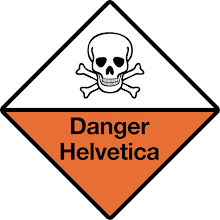Yes, probably. Or at least it is making us shallow and diffuse. I too have been worrying about my changing reading habits, and it is refreshing to hear an adult admit to his own waning attention rather than pawning off his concerns on "today's youth."As a prerequisite to the course I took at Northwestern University this summer, I had to take a "web fluency" seminar, conducted entirely online. Many of the assignments, and all of the quizzes and exams, were timed. Although I feel I benefited from exercises, it bothered me that in almost all cases the information itself was secondary to the skills I was learning. It is as if all summer I have been living a double life as I switch between two ways of thinking.
I have also noticed that I write very differently in different media. When I write using a pencil and paper, I always feel more connected to my work. I need to carefully consider what I write before I write it because I cannot simply strike a key to change it or interchange sentences and paragraphs at whim. For this reason, I often write out my more important assignments and more personally valuable works longhand. When I type them into a computer, it is a part of rewriting and editing process. For me, this blog feels yet one more step removed. It is ethereal and transient, and consequently I tend to be lazy and careless with it.
I used thesaurus.reference.com to find the word "diffuse" for the second sentence of this post. I was not being stupid. I know the word diffuse, and I knew I wanted to use it, but I couldn't quite place it in my mind. It would have taken me some time to remember it or use a physical text to find it. Most people would deem this particular use of the internet "defensible," but soon thereafter the line blurs. Reference.com is meant to be used--well, as a reference. But the internet automatically changes any material into quick reference: it is there, not as a whole, but as a collection of phrases, bits of information to be sifted and siphoned by undiscerning browsers. The main substance of any length of writing lies in the connection and ordering of ideas. The "search" and "find" functions ultimately destroy the text as a cohesive entity and thereby obviate the authorship.
Carr has a point, though, in discussing past resistance to technologies we now take for granted. We can never see ahead, and there will always be late and early adapters. We can, however, be cautious and open-minded when considering how new technologies are shaping our culture. Each of us, individually, holds the power to become become a pancake or not. I still read books and long articles. Hell, I still memorize. I also use the internet frequently and extensively, and I feel I have benefited. Kudos to all of you who made it this far, who read this as a whole and not the sum of its parts, as well as to those of you who faithfully read the mouseover text on webcomics. Extra points for the use of the word "gewgaws."
http://baryka.blogspot.com/2007/05/and-he-ate-only-pops-that-were-lolly.html
Monday, August 24, 2009
Subscribe to:
Post Comments (Atom)

I particularly enjoyed your comment about how Mr. Carr does not "[pawn] off his concerns on 'today's youth.'" I hate it when the baby boomers blame Gen-X and now we are being blamed by both.
ReplyDeleteYou second paragraph was interesting to me. I, too, notice that I often right differently in different media. However, I feel like my longhand tends to be more informal and raw. My short hand is just scribbles of thoughts. My typing, though, is generally more well-thought-out and prepared. When I type I can write faster so I take the time to think about it as opposed to my handwriting which is a direct flow from my brain to the pen.
Excellent, Isis. Great job using your own experiences to riff on Carr's thesis. Funny voice, also!
ReplyDeleteI also think AP Comp should be renamed "Glot that is Polly."
ReplyDeleteI really like your writing style, Isis, it's fun to read. I also agreed with many of your pionts. My attention is also waning when I read, but I'm comforted by the fact that people were afraid of things about technology that never happened. I think if we keep a watchful eye without being paraniod, that would be a good thing.
ReplyDelete